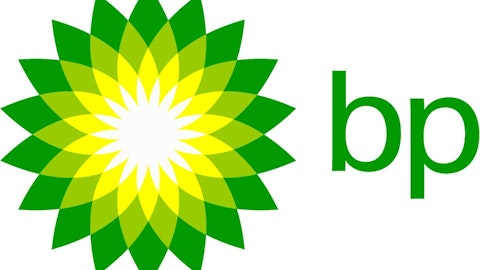Another firm positioned well is Westport Innovations Inc. (USA) (NASDAQ:WPRT). Wesport is considered the most advanced gas-injection engine designer in the field, and it’s currently working with Shell to actively market the fuel to members of the transportation industry. In recent months it has also aligned itself with other leading companies to broaden its position. These include a partnership with a private company to develop improved LNG engine technology, one with General Electric Company (NYSE:GE) to build railroad locomotive engines that can operate on either diesel or LNG, and one with Cummins Inc. (NYSE:CMI) to design a co-branded line of clean burning natural gas engines.
And its moves continue. In late February Westport announced an agreement with one of China’s largest private companies to cooperate globally on LNG projects for on-road, off-road, rail and marine applications. Around the same time it also presented specs for a Compressed Natural Gas, or CNG, bi-fuel system that will be available on Ford F-450 and F-550 Super Duty Chassis Cab trucks starting in April.
Also poised to gain is Clean Energy Fuels Corp. (NASDAQ:CLNE). This company is already the largest direct supplier of natural gas to the transportation industry, and it plans to remain the leader as demand grows. It currently operates more than 70 LNG fueling stations in 33 states. In recent months it has been in the process of doubling that number by building out a “natural gas highway” on interstates connecting major cities across North America. Clean Energy has also bought two LNG plants from GE to process additional fuel for delivery to these stations.
Additionally, in recent weeks Clean Energy Fuels Corp. (NASDAQ:CLNE) announced a pilot project with YRC Worldwide, Inc. (NASDAQ:YRCW) to operate four LNG trucks with its fuel in Southern California. The goal will be to analyze the maintenance, fuel and operations of these vehicles compared to those using traditional petroleum products. Clean Energy also released the third edition of its “Road to Natural Gas,” which details the various airport, taxi, transit, trucking companies and shippers that have increased their bet on natural gas since last November.
The bottom line
A number of caution flags are raised whenever someone discusses the possibility of increased natural gas use by the transportation industry. Among the most significant (and relevant) concerns are high upfront transition costs, a lagging infrastructure for fuel delivery, and the growing controversy over fracking as the key method of production.
The biggest worries, however, have been around the possibility of rising prices and falling production. Recent studies by the University of Texas and RBC seem to put those fears to rest, however, meaning natural gas products should only secure an ever-larger place in the transportation industry moving forward.
The article Studies Bolster Natural Gas Transportation Plays originally appeared on Fool.com and is written by Howard Rothman.
Copyright © 1995 – 2013 The Motley Fool, LLC. All rights reserved. The Motley Fool has a disclosure policy.





